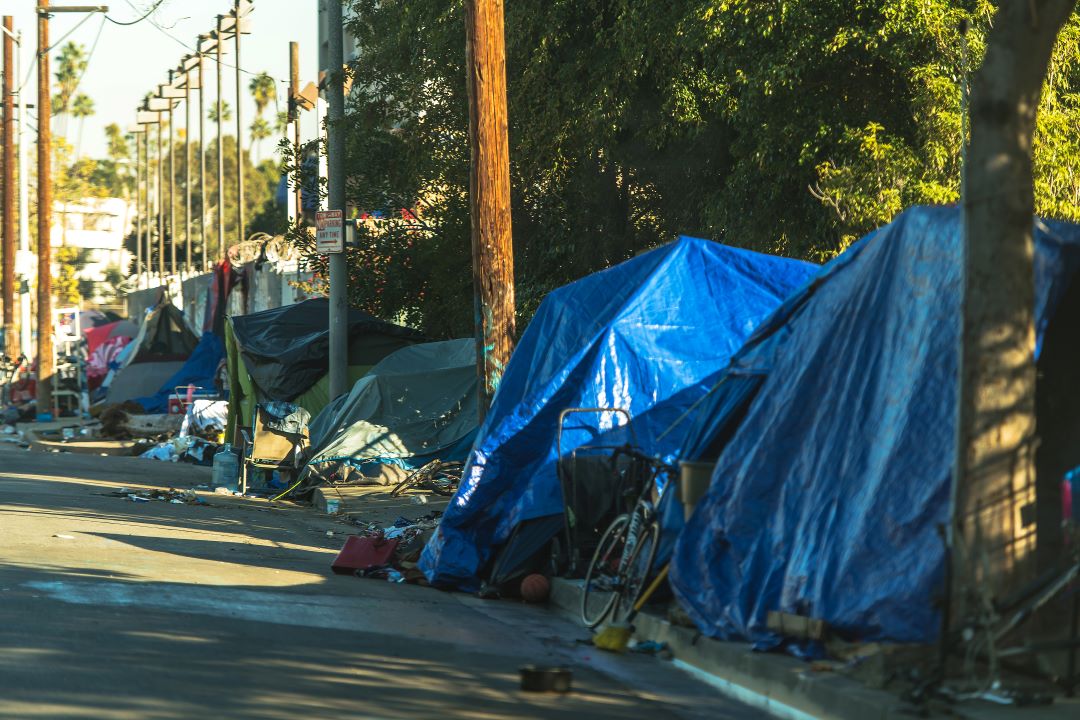An odd thing about so-called superstar cities and boomtowns—places where the “winners” of the global economy tend to move and live—is that they are overwhelmed by homelessness. As Manhattan Institute senior fellow Stephen Eide puts in his new book, Homelessness in America: The History and Tragedy of an Intractable Social Problem, “there’s less public concern about homelessness in Youngstown than there is in San Francisco.” Images of homeless encampments, violence, filth, and disorder haunt our media. Claims of systemic failure abound. To the left, austerity politics and NIMBYism are the root causes of homelessness—a mark, supposedly, against the right. To the right, liberal contempt for public order and the fraying of the social fabric is to blame. It appears we have a political problem, or at the very least, a culture war.
And yet, homelessness has a face. Buried underneath these layers of despair is a member of the human family, a fellow American, and a child of God, so it’s a problem that we cannot leave jammed up in the conflict between left and right. We must do something. But what?
Eide’s book is the most comprehensive account of homelessness in America; a must-read for anyone seeking to understand the problem and look for solutions. Reader be warned: he offers no quick fix, and no one fix. But that should not cause us to shy away from our duty to help our fellow Americans. Eide provides a roadmap for how. To better understand this issue, IFS asked Eide five questions.
Michael Toscano: What is the connection between success and homelessness?
Stephen Eide: Rural Mississippi, Detroit, other Rust Belt cities: these places face a long list of challenges. Homelessness, though, ranks low. By contrast, in San Francisco and New York, homelessness tops surveys of public concern. Pre-pandemic, urbanites seemed to take homelessness-related disorder in stride. It was almost like a Faustian bargain, a price you just had to pay for urban vitality. But after everyone spent 1-2 years at home, collective standards for public order rose. Homelessness is now really hampering [the ability] of major cities to get people back to the office and revitalize central business corridors.
Continue reading the entire piece here at Institute for Family Studies
______________________
Stephen Eide is a senior fellow at the Manhattan Institute and contributing editor of City Journal.
This piece originally appeared in Institute for Family Studies
